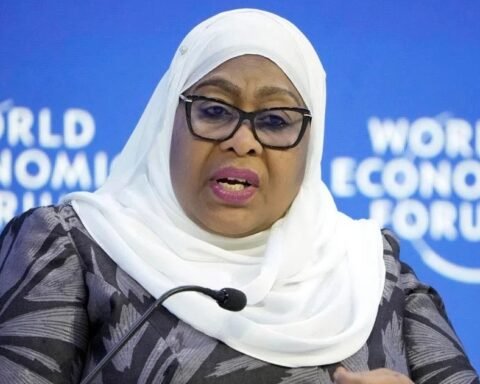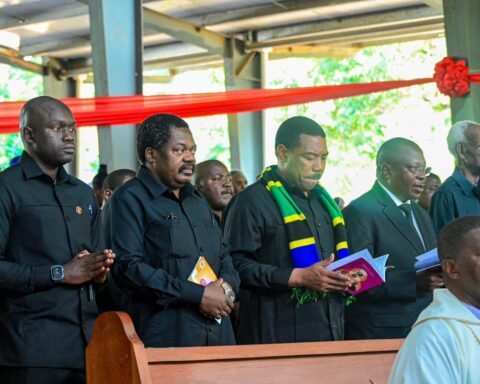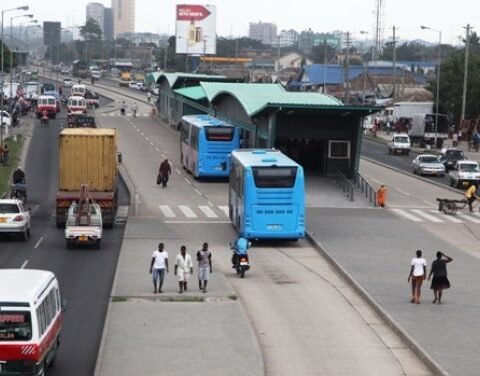As debates over sovereignty and morality deepen across Africa, Tanzania finds itself at the crossroads of a global cultural clash. At the center is a single question: Who gets to decide how societies live?
For the European Union and its parliament, the answer is straightforward: human rights are universal, and LGBTIQ+ equality must be defended everywhere. For Tanzania’s ruling Chama Cha Mapinduzi (CCM) and many in society, the answer lies in local values, cultural traditions, and moral foundations built over generations.

In January 2025, the European Parliamentary Research Service issued a briefing reaffirming the EU’s commitment to promoting sexual orientation and gender identity rights worldwide. The paper underscored that Brussels funds global programs for decriminalization and legal protections, but admitted a strategic contradiction: explicit references to LGBTIQ+ rights are often omitted in regional agreements with African states to avoid political backlash (europarl.europa.eu).
For critics in Tanzania, this is evidence that Europe is pursuing a hidden agenda — pushing sensitive reforms indirectly through NGO funding streams rather than transparent dialogue. They argue that such priorities divert resources from urgent development needs such as health infrastructure, roads, and schools.
The backlash is evident at the highest levels of government. President Samia Suluhu Hassan, unveiling Tanzania’s 2024 foreign policy in May, warned activists from the East African region not to meddle in the country’s affairs.
“Tumeanza kuona mtiririko au mwenendo wa wanaharakati wa region hii, kuanza kuingilia mambo yetu huku, sasa kama kwao wameshathibitiwa wasije kwetu huku, tusitoe nafasi,” Samia said, urging security organs to prevent Tanzania from becoming, in her words, “shamba la bibi kwa kila mmoja kuingia na kutoa tamko lake.”

At home, the government also faces criticism from domestic watchdogs. The 2024 Legal and Human Rights Centre report warned that civic space is shrinking, with NGOs constrained, activists harassed, and marginalized groups — particularly those linked to LGBTIQ+ issues — left vulnerable. The report urged Tanzania to align its laws with international human rights standards and decriminalize homosexuality.
Government officials, however, dismissed the findings as biased and externally influenced. To CCM leaders, such reports mirror the EU’s agenda and risk destabilizing the peace Tanzania has carefully nurtured since independence. Instead of viewing them as constructive criticism, officials cast them as attempts to reframe Tanzania’s cultural and moral order under the guise of human rights.
The defense of values is not only a presidential theme. In Parliament this May, Minister for Community Development, Gender, Women, and Special Groups, Dr. Dorothy Gwajima, addressed what she called a “moral erosion” in society.
“Kurekebisha maadili si jukumu la Wizara pekee, bali ni wajibu wa jamii nzima na taasisi zote za umma na binafsi kushirikiana katika kuimarisha msingi wa maadili,” she told MPs, adding that her ministry continues to promote child upbringing guidelines and cultural frameworks that strengthen Tanzanian values.
Also Read; Tanzania Struggles to Cut Poverty Despite Growth
Family, in the African context, is conceived as more than the nuclear unit. The Kilombero District Council’s 2021–2026 strategic plan describes the family as the foundation of social discipline and cultural transmission, involving not just parents but also extended relatives, elders, and community networks. When families weaken, the document warns, erosion of values follows — creating openings for harmful external influences. That framing, of family as the bulwark of morality, provides a counterpoint to external campaigns. To Tanzanian leaders, fortifying households and communities is a more legitimate path to social stability than importing Western rights discourses.
Prime Minister Kassim Majaliwa reinforced the government’s message this September while representing the President at a national Maulid celebration in Tanga. He said Tanzania was “built on the solid foundations of peace, patriotism and good morals” laid down by its founding leaders. He praised religious leaders for partnering with the government in promoting peace, discipline, and morality.

“Maisha ya Mtume yanaonesha mfano na yanatufundisha kuwa waadilifu, kuishi kwa maadili, na kumtegemea Mwenyezi Mungu katika kila jambo,” Majaliwa said, urging Tanzanians to guard peace as a divine gift.
Religious leaders echoed his concerns. The Mufti of Tanzania, Sheikh Abubakar Zubeir bin Ali, told clerics to intensify preaching against any acts threatening peace: “Amani si jambo la hiari, hivyo kila mmoja anapaswa kusimamia uwepo wake.”
For the government, morality is not only a cultural or religious matter but also a national security priority. Peace, officials insist, is the prerequisite for worship, daily life, and development.
Also Read; Tanzania Struggles to Cut Poverty Despite Growth
The debate has spilled into the political arena. While CCM dominates the narrative, opposition candidates have also seized the issue. NRA presidential hopeful Hassan Almas pledged to introduce harsher laws against homosexuality if elected, while ADC’s candidate controversially suggested castration for men convicted of sodomy.
These extreme positions highlight how deeply entrenched the issue has become in Tanzanian politics. Across party lines, there is consensus on rejecting homosexuality — though methods differ — reinforcing the perception that LGBTIQ+ rights campaigns are out of step with Tanzanian society.
Tanzania’s pushback mirrors a continental pattern. From Ghana to Uganda, governments frame Western rights campaigns as cultural imperialism. For many, the rhetoric of sovereignty resonates more strongly than EU commitments to inclusion. CCM argues that its guardianship of national peace proves the effectiveness of local values.
From Nyerere’s ujamaa philosophy to Magufuli’s nationalist stance and now Samia’s careful diplomacy, the party insists it is preserving unity and stability against outside pressure. The contradiction between European advocacy and African resistance underscores a wider global fault line: what one side sees as progress, the other sees as destabilization.
In the end, Tanzania’s leaders insist the right to decide how society lives rests with Tanzanians themselves. President Samia’s warning to activists, Dr. Gwajima’s call for stronger family foundations, Prime Minister Majaliwa’s defense of peace and patriotism, and even opposition candidates’ pledges all converge on a single message: morality is a sovereign matter. For the EU, human rights are universal and non-negotiable. For Tanzania, they are cultural, negotiated within its own traditions.
And so the question lingers — in government offices, religious pulpits, and village gatherings across the country: Who gets to decide how societies live?








Why are westeen nations imposing themselve into the lives of African. Its unfortunate for my black pa
Why are westeen nations imposing themselve into the lives of African. Its unfortunate for my black people